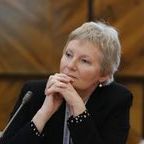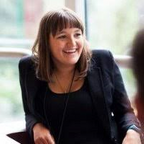Speakers



09:00 – 10:00 CEST, 20 September 2024 ‐ 1 hour
Room: Session room 13
Panel session
Joint degrees represent the most ambitious type of joint educational provision, giving students unique opportunities to experience embedded mobility, innovative pedagogies and a transversal international experience based on strong cooperation arrangements. This session will present a blueprint for a joint European degree, building on the results of six Erasmus+ pilot projects and exploring how a joint European degree can be a game changer to upscale and foster more joint degrees across Europe.



Arqus European University Alliance, Spain
Dorothy Kelly is a professor of Translation at the University of Granada (Spain), where she was also Vice Rector for Internationalization from 2008 to 2023.
Erasmus Student Network, Portugal
Rita is 28 and comes from the coast of Portugal. She has a bachelor's in Poli:cal Science and Interna:onal Rela:ons and a Master's in Public Policy. Rita did her Erasmus in Leuven, Belgium, and worked at the United States Embassy in Lisbon in 2018 and in the Poli:cal Observatory in the Associa:on for Poli:cal Studies and Scien:fical Research in 2020. She joined ESN in 2018 when she moved to Lisbon to start her master's. She held several posi:ons in the network, such as President of Portugal and Liaison Officer for Inclusive Mobility. As president, she is responsible for the general coordina:on of the organisa:on, external rela:ons, policy, and advocacy. Her main priori:es include increasing par:cipa:on in learning mobility and fostering civic engagement and par:cipa:on of young people through Erasmus.
European Commission, Belgium
Tine Delva works as deputy Head of Unit in the higher education department of the Commission's Directorate-General for Education and Culture (DG EAC). Tine is fully involved in the European Universities initiative and the European strategy for universities, as well as in the Erasmus+ programme. Before, Tine worked in the economic department of the Secretariat-General of the European Commission, where she was contributing to the work of the European Commission in areas such as economic governance and the EU follow-up to the UN 2030 Agenda for Sustainable Development. Before Tine entered the European Commission, she was a cabinet member of two Members of the European Parliament. Tine has an academic background in economics, complemented with European affairs. She is co-author of the book "The functioning of Europe, after Lisbon" (2010, 2015, in Dutch).